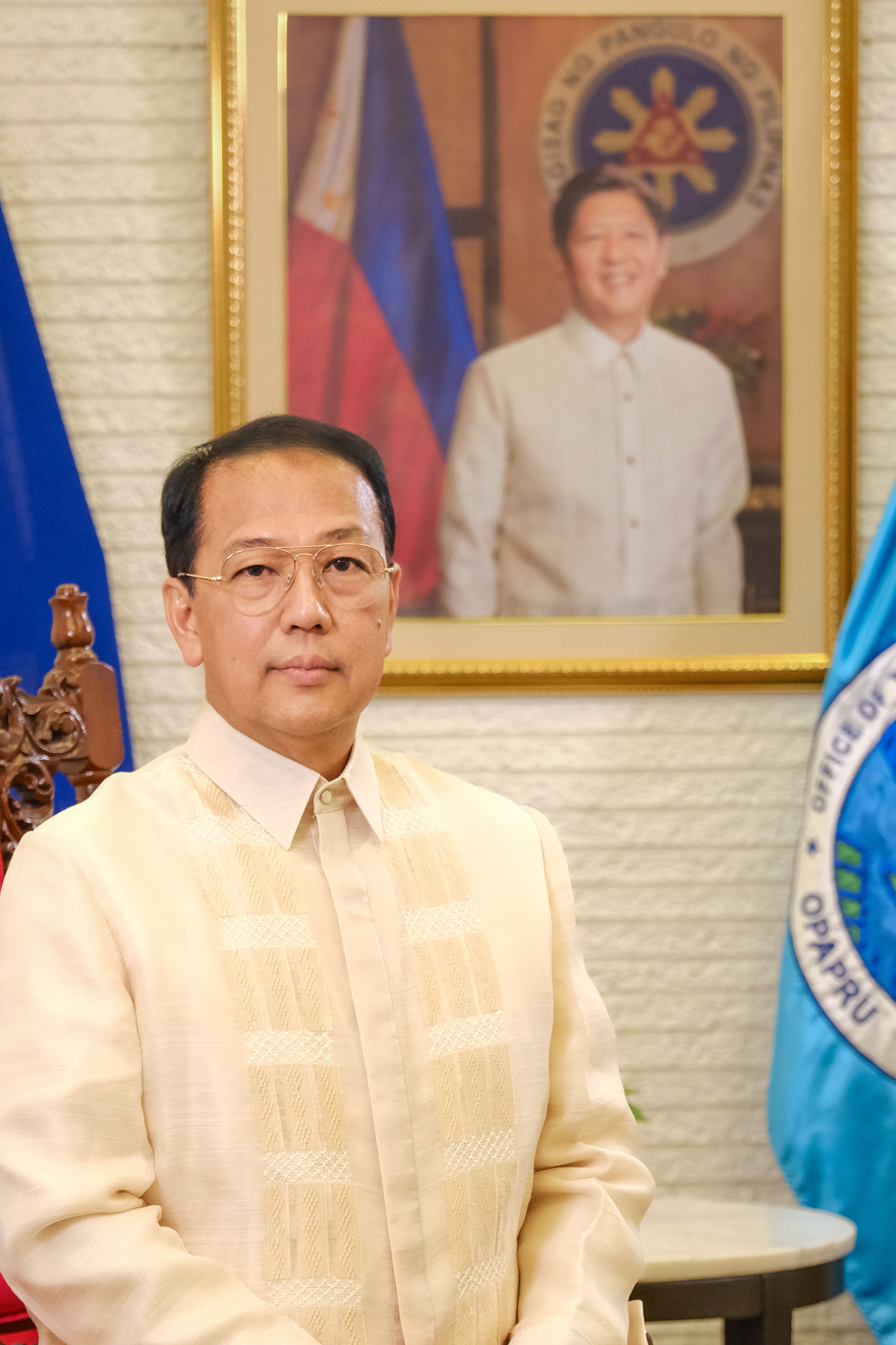PEACE BY PEACE

(Part I)
We reported last week the start of the International Conference on Women, Peace and Security (ICWPS) at the Philippine International Convention Center (PICC).
The ICWPS Operations Center (OPCEN) reported the attendance of 691 delegates from 84 countries representing six regions of the world. Most of the attendees were from government, academe, international organizations and from 108 civil society organizations. Of these delegates were six ministers, 11 vice ministers and 10 parliamentarians.
The First Lady, Madame Louise “Liza” Araneta-Marcos, welcomed the delegates at the opening ceremonies Monday morning at the PICC. She said the Marcos administration puts a premium on women's empowerment. “Since this summit is about women, my husband Ferdinand Marcos asked me to personally convey our welcome and to let you know that the Philippines is honored to host a conference of this significance and stature,” she said.
“This is the first international conference to be held in Southeast Asia, but it is specifically intended to take stock of how far we have all come in our country's implementation of Women, Peace, and Security's Agenda,” she added. She also graced the welcome reception at the Manila Hotel. The evening activity provided a preview of Philippine culture. It was celebrated in the most iconic venue in Manila. The affair was regaled with the music of our generations by the Philippine Philharmonic Orchestra and connected to our regions through the frolics of the Bayanihan Dance Company.
The rhythms and sounds of the first night of the three-day meeting resonated in the vibrancy of the discussions in the plenary sessions and side events which continued for the next two days. Most of the conference venues were filled to the brim and there were instances when more chairs were brought in to accommodate more people, around 700 more guests came exclusively for the side events. The attendance foretold the success of the conference.
The exchanges in the halls and corridors of PICC show how deep and wide the knowledge and experiences assembled in one place. There were two high-level segments, one parliamentary roundtable, four thematic discussions, and one special forum. The four thematic discussions were each spearheaded by the conference co-organizers. Session one on “Shaping Peace: Meaningful Participation and the indispensable Role of Women in Peace Processes” was co-organized by the Department of Foreign Affairs (DFA) and the Office of the Presidential Adviser on Peace, Reconciliation and Unity (OPAPRU). Session two on “NAPWPS Praxis: From Vision to Reality” was handled by OPAPRU with the support of DFA. Session three on “Investing in Impact: Financing Strategies for WPS Initiatives” was organized by the Department of Budget and Management (DBM). The Philippine Commission on Women took care of Session four “Rising Tides, Rising Leaders: Women Spearheading Climate, Peace and Security.”
These modern thinkers in these sessions rival the intellect and praxis of the ancient philosophers we often quote. One session explored partnership-building experiences in support of WPS across Southeast Asia, the Middle East, North Africa, and globally. Another session shone the spotlight on “women leaders at the forefront of addressing climate change's impact on peace and security, showcasing their strategies for resilience and sustainable solutions.” Other sessions highlighted “the meaningful participation and indispensable role of women in peace processes, the journey of the National Action Plan on Women, Peace, and Security (NAPWPS) from vision to reality, and innovative financing strategies for WPS initiatives.”
H.E. Dace Melbarde, Parliamentary Secretary of the Ministry of Foreign Affairs of Latvia, moderated a discussion which brought together distinguished speakers, including H.E. Coulibaly Mariam Maiga, Minister of Women, Children and Family of Mali; H.E. Noura bint Mohammed Al Kaabi, Minister of State at the Ministry of Foreign Affairs of the United Arab Emirates; Hon. Amenah F. Pangandaman, Secretary of Budget and Management of the Republic of the Philippines; H.E. Catherine West, Parliamentary Under-Secretary of State for the Foreign, Commonwealth and Development Affairs of the United Kingdom; and H.E. Huria K M Elta.This high-level panel dwelled on key issues in Women, Peace and Security.
Secretary Pangandaman framed the exchanges on the positive reporting that “that we have ensured that the global imperative of advancing women, peace, and security initiatives did not fall on deaf ears. And that 24 years later, the Philippines remains steadfast in the commitment to championing women’s empowerment and amplifying their roles in peacebuilding.”
Senator Loren Legarda, meanwhile, led the parliamentary roundtable which was also attended by Representative Rachel Arenas as speaker. The parliamentarians from among the delegates joined the Filipina legislators in the discussions.
The collective wisdom developed by the various stakeholders who were in attendance created the environment for the success of the conference.
The UN Deputy Secretary-General Amina J. Mohammed took special mention of the active participation of women in the Philippine peace process agenda in her opening speech. She said, “the Philippines’ appointment of the world’s first woman chief negotiator for major peace agreements stands as a testament to the transformative power of inclusive peace processes” referring to Chair Miriam Coronel-Ferrer who signed the Comprehensive Agreement on the Bangsamoro (CAB) with the Moro Islamic Liberation Front (MILF) on behalf of the Philippine government.
Many of those who attended took to social-media both to extol and offer a wishful vision for WPS. One said, “…It was well prepared and organized … I hope the gains of the conference in emphasizing the prioritization of WPS by governments and the international community will no longer be [just] rhetoric. This is to ensure that the people’s money are really put to good use and conferences like this can eventually be translated into making a difference in the lives of women on the ground …” Feedback bridges the sustained success of the conference.
In response, I believe that the conference bore fruit in the action agenda that developed from the activities.
(Part 2 on Nov. 11, 2024)
(Secretary Carlito G. Galvez, Jr. is the presidential adviser on peace, reconciliation, and unity.)